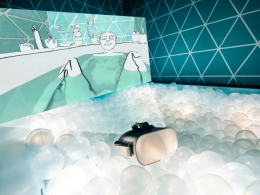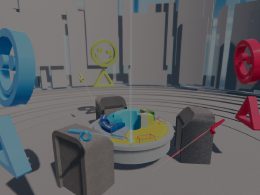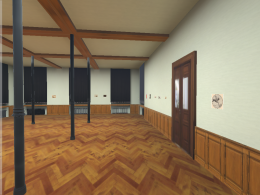When typing, each finger causes the wrist to vibrate differently. ETH researchers are using this knowledge to develop a sensor wristband called TapID, which enables hands-free, intuitive working in virtual space.
For many VR nerds, the longer the more the question arises: Why is VR still not more widespread in our daily lives?
Christian Holz, Professor at the Institute for Intelligent Interactive Systems at ETH Zurich, sees the central problem in the interaction between humans and technology. "The technologies have not yet become established, especially for productive activities such as traditional office work," he says. Most VR applications today are either operated with controllers that are carried in the hand or with the hands in the air, whose position is captured by a camera. In most cases, users also stand while operating the system. "If you always have to hold your arms up, it quickly becomes tiring," says Holz, "A normal work process, i.e. interacting with the system over several hours, is inconceivable in this way."
For the team of researchers led by Christian Holz, it is therefore clear that passive surfaces are still important for the meaningful productive use of VR. This can be the classic tabletop, but also a wall or your own body. In order to utilise these optimally, they developed a sensor principle called TapIDwhich they will present at the Conference IEEE VR at the end of March.
Virtual reality with a tap
The virtual piano is particularly well suited to demonstrating the advantages of TapID, says Holz: "Here, not only spatial accuracy but also timing is essential. The time at which the keys are touched must be recorded as precisely as possible. The sensors on the wrist do this much better and more accurately than a camera."
Another point that Christian Holz sees is mobile virtual reality: "Our sensor technology is so portable that we could also use VR on the move in the future. With TapID, you can operate applications on your own hand or thigh - anywhere and at any time." Computer science professor Holz sees the future of virtual reality in being able to work together regardless of your physical position - not restricted by hardware, but as if you were in the same room. "TapID could be an important step in this direction," concludes Christian Holz and will continue to research this with his team led by Manuel Meier, Paul Streli and Andreas Fender.
Source: Horizon / Youtube









